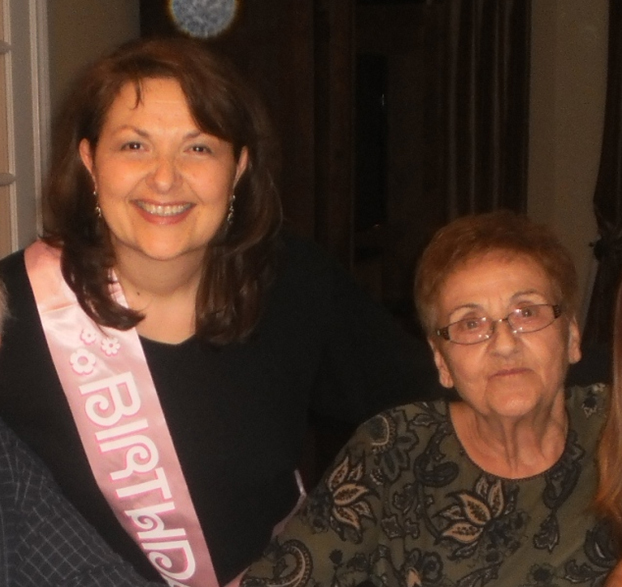
My mother is living with Alzheimer’s disease. Here’s how getting a diagnosis has empowered us
My mother, Bruna was officially diagnosed with Alzheimer’s disease in January of 2011. The disease was not unknown to her family. Three of her sisters died of complications resulting from this creeping and subtle sickness, as well as her paternal grandmother.
Not long after the second time she had become disoriented while driving and her ever increasing lapses in recall, I decided to take her to visit her doctor. What if she ended up hurting herself, or worse, someone else? I could never forgive myself.
“Well Bruna, I think we’ll have to send you for more tests to figure out why your memory is failing you. Until then I don’t want you driving. It’s too dangerous for you and the people around you,” the doctor explained.
The ride home was awful. “Now I can’t drive anymore. You’d better be prepared to take me wherever I need to go because now I can’t take myself!” The decibel level of her voice rose with every word.
I pulled into her driveway, relieved to be there. My mother exited my van and slammed the door, uttering one last declaration of disappointment at how I had betrayed her. I was drained, yet I could only imagine how she felt – to know that her independence would be taken from her. To think that it would render her less able to look after herself with every passing year. This was the beginning of my mother’s journey with Alzheimer’s.
I cannot stress enough how I agonized about taking her to her doctor, but I knew that the longer we waited, like any serious disease, the less likely we would be able to treat it effectively. In retrospect, we were lucky, because I knew the signs. Even though she presented different symptoms, my aunt had Alzheimer’s years earlier and I saw the horrible process first hand.
The most crucial piece of information I can pass on is that the signs of Alzheimer’s can be different for everyone and that everyone – spouses, sons, daughters, sisters and brothers, need to be informed and aware of the possible risk. Knowing the signs and taking charge of the situation by helping your loved one to visit a health care professional if you suspect issues with memory is the best thing you can do for them.
My mother has been fortunate enough to receive care from many people and organizations in the community – healthcare professionals, community care services and the Alzheimer Society. Our local Alzheimer Society helped us understand the disease and assist my mother in living with it and managing her life. She is still living independently with some assistance and she takes medication which has slowed the progression considerably.
Many have helped to lighten the load. We have spoken to compassionate, supportive and patient individuals from the Alzheimer Society who are willing to give of themselves to assist us and educate us about where we can turn for help. And for this we thank them.
My mother is living independently with Alzheimer’s Disease and she refuses to be its victim. Know the signs and get checked out as soon as possible.
Learn more about:
- the 10 warning signs of dementia
- the benefits of getting a diagnosis
- seeing your doctor, including a checklist to prepare for the visit